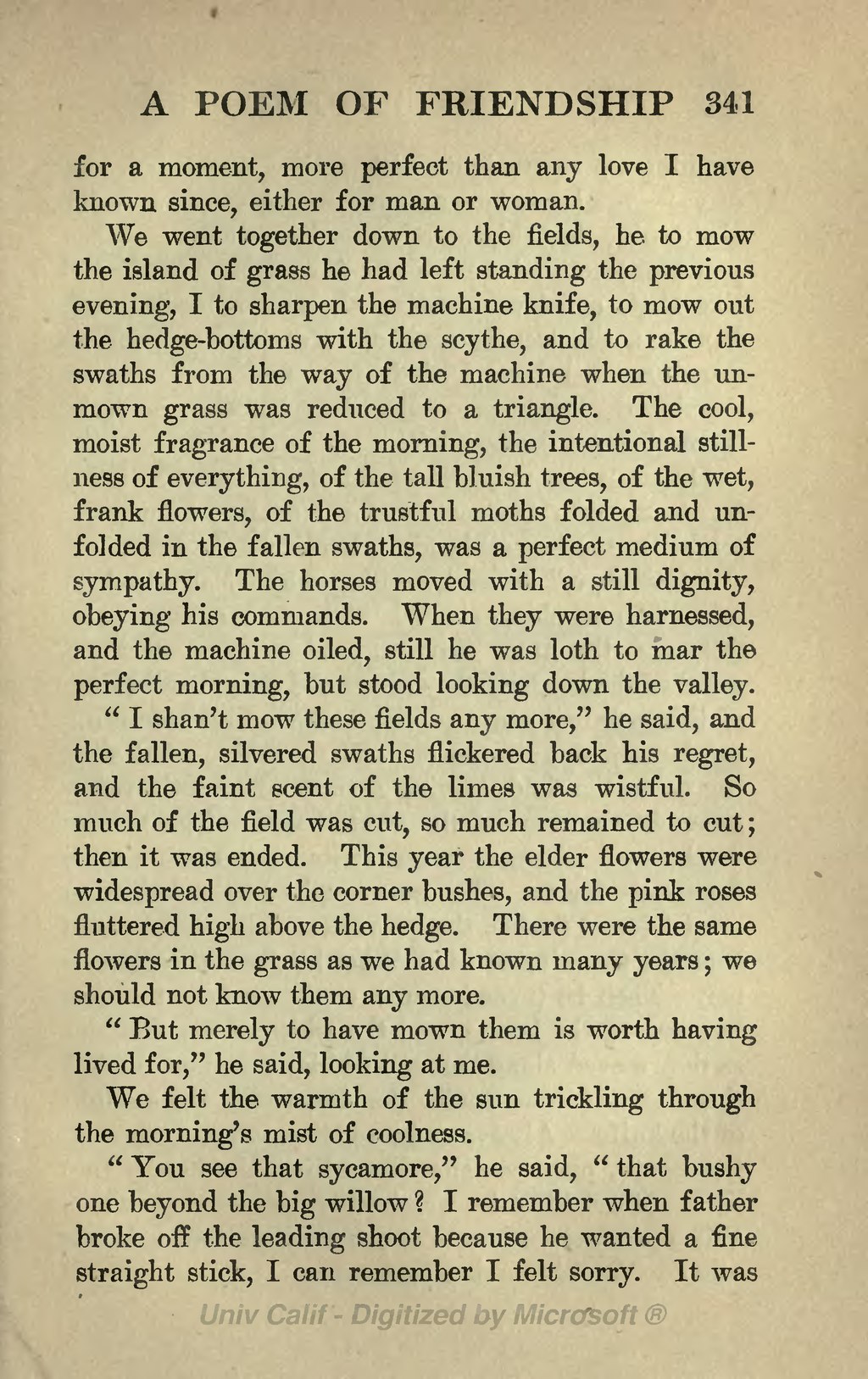for a moment, more perfect than any love I have known since, either for man or woman.
We went together down to the fields, he to mow the island of grass he had left standing the previous evening, I to sharpen the machine knife, to mow out the hedge-bottoms with the scythe, and to rake the swaths from the way of the machine when the unmown grass was reduced to a triangle. The cool, moist fragrance of the morning, the intentional stillness of everything, of the tall bluish trees, of the wet, frank flowers, of the trustful moths folded and unfolded in the fallen swaths, was a perfect medium of sympathy. The horses moved with a still dignity, obeying his commands. When they were harnessed, and the machine oiled, still he was loth to mar the perfect morning, but stood looking down the valley.
“I shan’t mow these fields any more,” he said, and the fallen, silvered swaths flickered back his regret, and the faint scent of the limes was wistful. So much of the field was cut, so much remained to cut; then it was ended. This year the elder flowers were widespread over the corner bushes, and the pink roses fluttered high above the hedge. There were the same flowers in the grass as we had known many years; we should not know them any more.
“But merely to have mown them is worth having lived for,” he said, looking at me.
We felt the warmth of the sun trickling through the morning’s mist of coolness.
“You see that sycamore,” he said, “that bushy one beyond the big willow? I remember when father broke off the leading shoot because he wanted a fine straight stick, I can remember I felt sorry. It was
